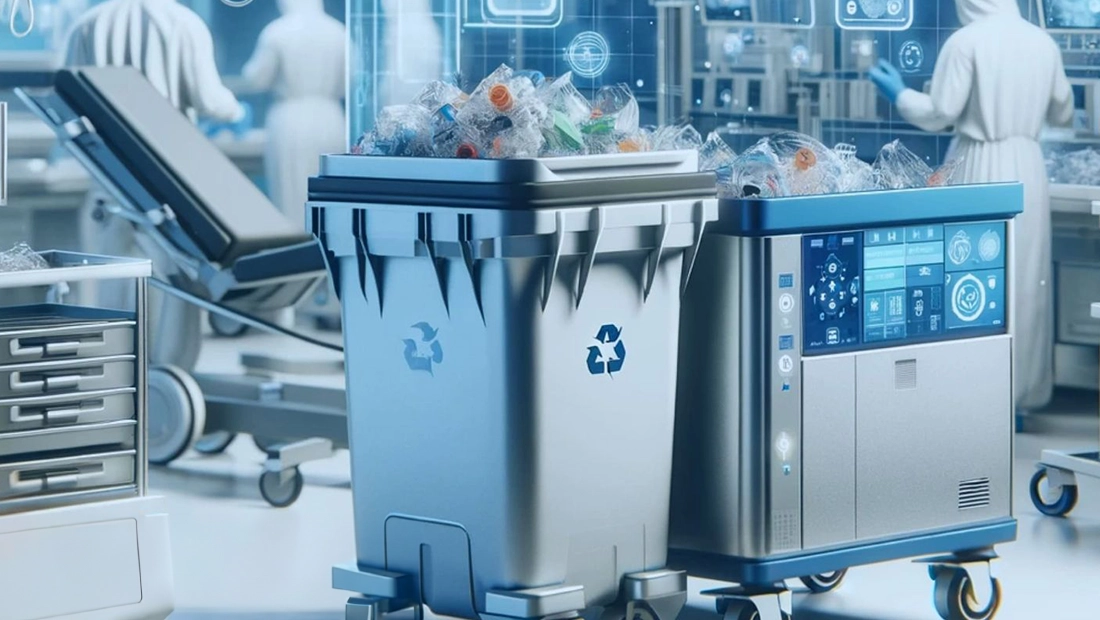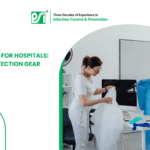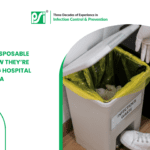Why Bio-Medical Waste Management Matters: Understanding the Importance at Plasti Surge Industries
Biomedical waste is also referred to as bio-hazardous waste and comprises any waste marked with infectious or potentially infectious conditions. Different categories include sharps, pathological waste, pharmaceutical waste, and laboratory waste. Effective medical waste disposal is vital to curb infection and safeguard community health from threats posed by bio-hazardous wastes and the environment.
Plasti Surge Industries makes an essential contribution to the area of medical waste management. The company offers innovative and technological solutions for effective and safe disposal and treatment of bio-waste. Keeping in mind the significance of the company’s operations, it is required to note that all of the biohazardous materials treated by the company are fully deposited and treated with all of the measures needed by the legislation to be disposed of correctly while deadlines are met to secure public health and the environment.
Health and Environmental Impact
- Health Risks: Improperly managed biomedical waste poses serious health risks such as infections and infection-borne diseases. Ineffective medical waste management may result in bio-hazardous material’s pathogens spilling into the environment, causing a high prevalence of diseases among health care providers, patients, and the community. The mentioned are examples that emphasize the importance of waste management to ensure the safety of the public health and prevent health emergencies.
- Environmental Consequences: If not handled correctly, biomedical waste can do severe damage to ecosystems, infect water supplies, and contaminate the air. When biohazardous waste is poorly disposed of, it can penetrate the soil and water, releasing harmful pathogens and chemicals into the local ecosystems. Toxic fumes that can kill off local wildlife touch the air as a result of insufficient medical waste disposal. As a result, medical waste disposal is important to maintain the stability and environmental safety of ecosystems.
Regulatory Compliance
- Legal Framework: Some of the key provisions and regulations and guidelines around bio-medical waste management touch on the safety protocols in handling, treatment, and disposal of the materials. Some of the guidelines include the segregation of the bio-medical waste at the source using color-coded containers, labeling as well as the transportation protocols. Moreover, the guidelines mandate treatment using incineration, autoclaving, and use of chemicals as a means of neutralizing infectious agents. Compliance with bio-medical related management is critical in ensuring public health and keeping the environment safe.
- Plasti surge’s Compliance: It is to be mentioned that bio-medical waste guidelines are strictly followed in Plasti Surge Industries. It ensures that bio-medical waste is handled safely, segregated, and disposed of by color-code containers, labeling, and transportation. Furthermore, Plastisurge uses advanced treatment technology like incineration, autoclaving that neutralize and destroy highly infectious agents. Therefore, it can be claimed that it does its bio-medical waste by taking full care under the regulatory standards.
Economic Benefits
- Cost Savings: Appropriately managing bio-medical waste can drastically reduce healthcare costs through disease prevention. Segregating, treating, and disposing of bio-medical waste reduces the risk of infection, resulting in a decreased rate of hospital-acquired infections and treatments for the same. As a result, facilities can save billions of dollars from combating infection and contamination risks and outbreak costs due to the cost associated with filing lawsuits and regulation fines. Therefore, investing in excellent bio-medical waste management systems has economic benefits.
- Sustainability: Reduction of disposal costs and recovery and recycling of materials for revenue creation are economic benefits of sustainable waste management practices. Through the conversion of bio-medical waste materials into reusable products, healthcare systems may keep costs down, reduce their impact on the environment and create new economic opportunities for themselves. Ultimately, this can lead to more sustainable and economically viable benefits.
Technological Innovations

Advanced Solutions
- Autoclaving: High-pressure steam sterilization to neutralize bio-medical waste.
- Incineration: Controlled combustion to safely dispose of infectious and hazardous waste.
- Microwave Treatment: Use of microwave radiation to disinfect and reduce waste volume.
- Chemical Disinfection: Application of chemical agents to destroy pathogens in waste.
- Plasma Gasification: Advanced technology converting waste into energy and useful by-products.
- Smart Waste Tracking: Digital systems for monitoring and managing waste from generation to disposal.
- Recycling Programs: Initiatives to recover and recycle materials from bio-medical waste.
Innovation in Practice
- Autoclaving: Used to sterilize surgical instruments and laboratory waste before disposal.
- Incineration: Applied to dispose of infectious waste safely at high temperatures.
- Microwave Treatment: Employed to disinfect medical waste on-site, reducing its volume.
- Chemical Disinfection: Utilized for treating liquid waste from laboratories and hospitals.
- Plasma Gasification: Converts medical waste into syngas and other valuable by-products.
- Smart Waste Tracking: Tracks waste from hospitals to disposal facilities using digital tools.
- Recycling Programs: Recycles plastics and metals from disposed medical equipment and packaging.
Community and Corporate Responsibility
Public Health
It is crucial to emphasize that responsible waste management is essential for public health. The way how bio-medical waste is handled and disposed of helps prevent contamination, limit pollution that would occur if the waste were poorly handled, and put medical waste on our streets and yards. Therefore, by following protocols to the latter, everyone in the community from the health workers to the patients has ensured their safety, which means responsible waste handling is a significant way to ensure public health.
Corporate Social Responsibility (CSR)
- Community Education: Plastisurge conducts workshops to educate communities about the importance of proper biomedical waste disposal.
- Support for Healthcare Facilities: Provides resources and training to hospitals and clinics for effective waste management practices.
- Sustainability Projects: Initiates programs to reduce, recycle, and repurpose medical waste, promoting environmental sustainability.
- Partnerships with NGOs: Collaborates with non-profits to enhance waste management efforts and expand community outreach.
- Health and Safety Campaigns: Runs awareness campaigns focused on the health risks associated with improper biomedical waste disposal.
Conclusion
Biomedical waste management is crucial for preventing infections, protecting public health, and safeguarding the environment. Stakeholders must prioritize safe and effective waste management practices. Visit Plasti Surge Industries to learn more and take action today. Together, we can ensure a healthier, safer future for our communities.



